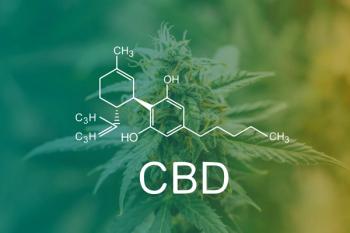
Rising Demand for Regulation in Texas’s CBD Market
Legal cannabis businesses are urging Texas politicians and legislators to regulate the state’s CBD market.
Texas politicians and legislators are receiving calls to regulate their state’s cannabidiol (CBD) market. Nico Richardson, who is the CEO of Texas Original, one of the largest legal medical cannabis dispensaries in Texas, is urging Governor Greg Abbott and other state legislators to oversee the transactions of hemp-derived CBD products (1). This also would include Delta-8 and Delta-9 tetrahydrocannabinol (THC). Richardson (1) has commented on the matter and said that “the state's unregulated hemp market has created a public health crisis, citing a spike in drug-related offenses in Texas schools and the abundance of young patients involved in calls to the Texas Poison Center Network.”
In the Lone Star State, they have a small-scale Compassionate Use program (2). The program was created to allow doctors who have been approved to “legally prescribe low-levels of THC” (1) for health conditions such as, post-traumatic stress disorder (PTSD), epilepsy, and cancer. It is intensely regulated which has caused concern in other areas cannabis merchandise is sold and not kept a closer eye on.
Despite having this intensely regulated program, throughout the state, a consumer can purchase unregulated CBD products or CBD-derived THC products lie Delta-8 and Delta-9 from gas stations and vape enterprises (1).
Axios Dallas (1) reported that the “federal Food and Drug Administration has warned that some manufacturers may use unsafe chemicals to convert CBD into Delta-8 — and that children might be particularly vulnerable to the effects.” According to the National Cannabis Industry Association (1,3), Delta-8 is banned in 17 states throughout the US. Results from a September 2023 lawsuit have kept Delta-8 THC legal in the state of Texas (1,4).
The Texas Original CEO has further commented on the harms of Texas’s unregulated cannabis market by explaining how “third-party testing has demonstrated that hemp flower products in Texas being sold to minors test well above the legal limit for THC and include potentially harmful pesticides and microbial contaminants,” (1).
“It is long past time for our governor and state Legislature to work together to create a safe and effective regulatory framework for hemp products,” Richardson expressed to Axios (1). “If the Texas Legislature wants to legalize recreational marijuana, they should pass legislation to that effect and develop a regulatory framework to keep these products from kids. What they shouldn't do is turn a blind eye to an unregulated marijuana market that lacks crucial age minimums and consumer protections that exist in other states.”
References
- Mooney, M. Legal Cannabis Sellers Want Texas CBD Market Regulated
https://www.axios.com/local/dallas/2024/03/11/texas-cannabis-sellers-cbd-market-unregulated (accessed Mar 12, 2024). - Compassionate Use Program
https://www.dps.texas.gov/section/compassionate-use-program (accessed Mar 12, 2024). - Gilbert, B. Member Blog: Where Is Delta-8 THC Legal and Where Is It Banned? CBD Oracle’s Map Has the Answers
https://thecannabisindustry.org/member-blog-where-is-delta-8-thc-legal-and-where-is-it-banned-cbd-oracles-map-has-the-answers/ (accessed Mar 12, 2024). - Vaughn, J. Hemp Hemp Hooray! Delta-8 Is Still Legal in Texas After Court Ruling
https://www.dallasobserver.com/news/delta-8-is-still-legal-in-texas-after-court-ruling-17584498 (accessed Mar 12, 2024).
Newsletter
Unlock the latest breakthroughs in cannabis science—subscribe now to get expert insights, research, and industry updates delivered to your inbox.




